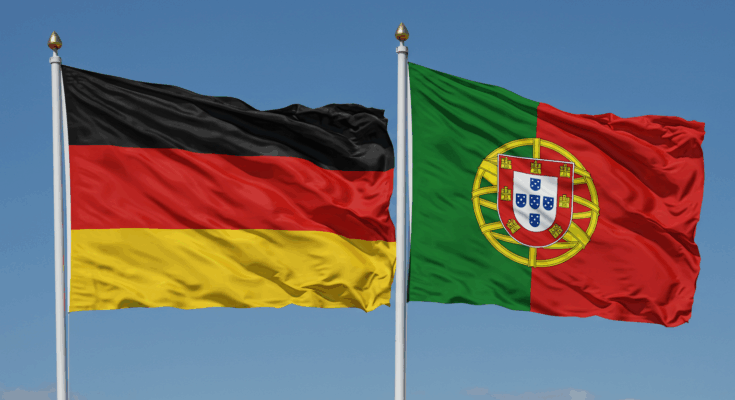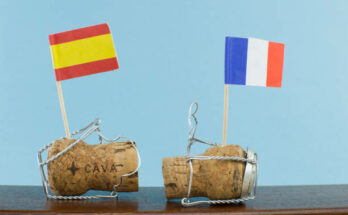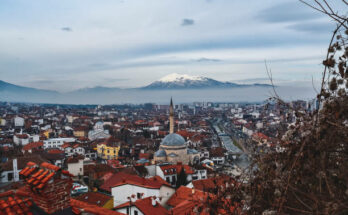Portugal and Germany, two nations with rich histories and distinct cultural identities, have developed a robust relationship over the years that spans economic cooperation, political dialogue, and cultural exchange. Though separated by geography, these two European countries have forged a strong bond rooted in mutual respect, shared values, and a commitment to fostering peace and prosperity in Europe.
This article explores the historical background of their relationship, highlights the ease of trade between them, and concludes with a look at their recent encounters on the soccer field—where both nations continue to showcase their national pride and sporting excellence.
Historical Foundations of the Portugal-Germany Relationship
The history between Portugal and Germany is marked by centuries of diplomatic ties, albeit with periods of fluctuation. During the 19th and early 20th centuries, both nations were part of broader European alliances and often found themselves aligned or at odds depending on global events.
During World War I (1914–1918), Portugal fought on the side of the Allies against Germany. This period created a complex legacy, but after the war, diplomatic relations gradually improved. In the post-war years, both countries focused on rebuilding and modernization, leading to increased cooperation in various sectors.
Germany’s post-World War II transformation played a significant role in redefining its relationship with Portugal. As West Germany emerged as a democratic and economically powerful state, it began engaging more actively with other European nations, including Portugal, which was transitioning from dictatorship under António de Oliveira Salazar to democracy in the mid-1970s.
In 1975, formal diplomatic relations were established between Portugal and the Federal Republic of Germany, marking the beginning of a new chapter in their bilateral ties. Since then, the two countries have worked closely within the framework of the European Union (EU) and NATO, further solidifying their partnership.
Economic Cooperation and Trade Relations
One of the most significant aspects of the Portugal-Germany relationship is their strong economic partnership. Germany is one of Portugal’s most important trading partners in Europe, and their economic ties are characterized by smooth trade flows, technological collaboration, and investment in key sectors such as automotive, energy, and renewable technologies.
Trade Volume and Key Sectors
According to recent data from Eurostat, Germany is among the top importers of Portuguese goods. Portugal exports a variety of products, including textiles, footwear, wine, and seafood, while importing high-tech machinery, vehicles, and industrial equipment from Germany. The automotive sector, in particular, has seen substantial growth due to the presence of German car manufacturers like Volkswagen, BMW, and Daimler in Portugal.
Moreover, the Renewable Energy sector has become a focal point of collaboration. Germany, a global leader in green technology, has supported Portugal in advancing its wind and solar power capabilities. This cooperation aligns with both nations’ commitments to the EU Green Deal and the goal of achieving carbon neutrality by 2050.
Ease of Trade and Investment
The integration into the European Single Market and the adoption of the euro have significantly simplified trade between Portugal and Germany. With no internal borders, streamlined customs procedures, and a common currency, businesses can operate seamlessly across both countries.
Additionally, free movement of labor under EU regulations allows for a steady flow of skilled workers between the two nations. Many Portuguese professionals work in Germany, particularly in engineering, healthcare, and IT sectors, contributing to both economies.
Investment flows have also been growing steadily. German companies view Portugal as an attractive location for manufacturing, logistics, and innovation hubs due to its strategic location, business-friendly environment, and access to EU markets. Conversely, Portuguese firms are increasingly investing in German startups and technology ventures.
Political and Cultural Ties
Beyond economics, Portugal and Germany maintain close political and cultural ties. Both countries are active members of the United Nations, the European Union, and NATO, and they regularly collaborate on issues related to climate change, security, and digital transformation.
Cultural exchanges are also thriving. Educational institutions in both countries offer joint programs and student exchange initiatives, promoting cross-cultural understanding. German universities frequently welcome Portuguese students, and vice versa, thanks to agreements like the Erasmus+ program.
Tourism is another area where the relationship is strengthening. Germany is one of the largest sources of tourists visiting Portugal, drawn by the country’s natural beauty, historic cities, and vibrant culture. Similarly, many Portuguese travel to Germany for leisure, study, or business purposes.
Recent Soccer Encounters: A Rivalry on the Pitch
While Portugal and Germany share a peaceful and cooperative relationship in real life, their interactions on the soccer pitch have often been intense and memorable. The rivalry between the two national teams has produced some of the most dramatic moments in international football history.
Euro 2016 Final – A Historic Encounter
Perhaps the most iconic match between Portugal and Germany took place in the final of the 2016 UEFA European Championship in France. In a thrilling encounter held at the Stade de France in Paris, Portugal defeated Germany 1–0 in extra time, thanks to a last-minute goal from substitute Éder. It was a moment of pure euphoria for Portuguese fans and marked Portugal’s first major international trophy.
This victory not only etched itself into the annals of football history but also became a symbol of unity and resilience for Portugal. For Germany, it was a rare defeat in a major tournament, especially considering their dominance in European football during that era.
UEFA Nations League 2020/21 – Another Showdown
More recently, the two teams met again in the 2020–2021 UEFA Nations League. The matches were highly anticipated, given the previous encounter in 2016. In a tightly contested group stage, Portugal managed to hold Germany to a 1–1 draw in Lisbon. The game saw goals from João Félix and Thomas Müller, highlighting the competitive spirit of both teams.
A New Chapter: Portugal vs. Germany Match Today
On June 4 2025, Portugal and Germany faced off once again in a much-anticipated international friendly or competition match. Played at Allianz Arena, the match drew massive attention from football fans around the world, eager to see how the two sides would perform following recent changes in squad lineups and coaching staff.
From the opening whistle, both teams displayed their trademark intensity and technical skill. Portugal, led by star forward Cristiano Ronaldo and a dynamic midfield, aimed to control possession and create scoring opportunities. Germany, known for their structured defense and rapid counterattacks, responded with precision and discipline.
The match ended in a 2-1, with Francisco Conceição and Cristiano Ronaldo scoring for Portugal while Florian Wirtz scored the only goal for Germany. Cristiano Ronaldo stood out for Portugal with a class action performance insert, while Germany’s Florian Wirtz delivered a stellar performance in attack.
The result of this latest clash will undoubtedly influence future tournament preparations for both teams and add yet another chapter to the storied rivalry between these two footballing giants.
Conclusion: A Partnership Rooted in Strength and Respect
The relationship between Portugal and Germany is a testament to what can be achieved when nations prioritize cooperation, understanding, and shared goals. From their historical ties to their current economic and political alignment, both countries have demonstrated a commitment to building a stronger, more sustainable future—not just for themselves, but for all of Europe.
As they continue to work together on pressing global challenges like climate change, digital transformation, and economic stability, the Portugal-Germany partnership serves as a model for international diplomacy and collaboration.
And when they meet on the soccer field, whether in tournaments like the Euros or the Nations League—or in today’s match—the world gets to witness a unique blend of rivalry and respect—a reminder that even the fiercest competitors can be the best of friends off the pitch.



